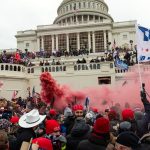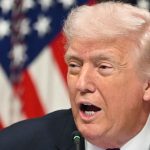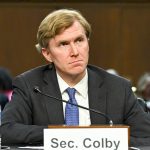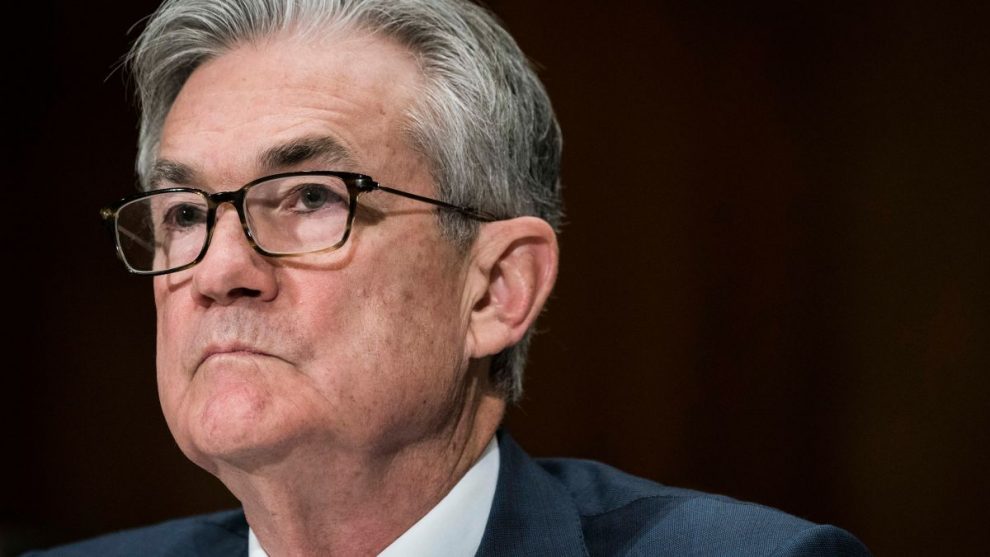The Federal Reserve announced an emergency interest rate cut Tuesday, saying it was slashing its benchmark target by half a percentage point to combat the risks by the global outbreak of the coronavirus.
This was the largest move in interest rates since the Fed cut rates during the financial crisis and the first emergency cut since late 2008. Typically, the rate target only moves its rate target at scheduled meetings. The next meeting is set to begin in two weeks.
“The fundamentals of the U.S. economy remain strong. However, the coronavirus poses evolving risks to economic activity. In light of these risks and in support of achieving its maximum employment and price stability goals, the Federal Open Market Committee decided today to lower the target range for the federal funds rate by 1/2 percentage point, to 1 to 1‑1/4 percent,” the Fed said in a statement.
In a press conference held after the announcement, Fed chair Jerome Powell said outbreak had disrupted economic activity in many countries and led to “significant movements” in financial markets.
NORAD Launches US Fighter Jets as Russian Military Aircraft Enter American Air Defense Identification Zone
Virginia Dems mandate Jan. 6 be taught as ‘violent insurrection,’ ban election fraud claims in schools
Trump Turns Up Heat on Republicans, Pressures Them to Pass SAVE Act: ‘Country Defining Fight for the Soul of Our Nation!’
Pentagon policy chief grilled as Dem claims Trump broke promise about going to war with Iran
Georgia sheriff arrested on DUI charge after blood alcohol content was allegedly almost triple legal limit
Small plane crashes into Phoenix home minutes after takeoff, injuring 3
‘Third-party’ auditor investigating Minnesota fraud received millions in state Medicaid funds
Macron vows nuclear arsenal boost as Europe turns to nukes amid rising global threats
‘Under siege’: Inside the growing radical Islam threat critics say is hiding in plain sight in deep red Texas
Walz-Ellison administration ‘enabled’ Minnesota’s fraud scandal: Guy Benson
NYC Dept of Education employee arrested, charged with murder of Bronx father
Savannah Guthrie returns to ‘Today’ show studio for first time since mother went missing
Iran widens regional war with first strike into Azerbaijan
5 House Oversight Committee Republicans Join with Democrats to Subpoena Pam Bondi in Epstein Probe
As Jasmine Crockett Concedes Texas Senate Primary, Attention Focuses on Radical Dem Who Beat Her
“The virus and the measures being taken to contain it will surely weigh on economic activity both here and abroad for some time,” Powell said.
The rate cut comes after ten days or so of mounting concerns over the coronavirus roiling financial markets. President Donald Trump has urged the Fed to take action a number of times over the past week, arguing that the central bank had to deploy a more accommodative monetary policy to deal with the economic risks because Democrats in Congress were unlikely to vote for a tax cut to stimulate growth.
Powell denied that pressure from the president had played any role in the decision to cut rates, saying the Fed had only taken into account its analysis of the economic situation in light of its mandate to foster price stability and maximum employment.
“We’re never going to consider any political considerations whatsoever. We will not do that and it’s very important that the public understand that,” Powell said.
Financial markets themselves have pressured the Fed, pushing longer-term interest rates to record lows and fed funds futures prices to reflect what amounted to a demand by investors that the Fed move off its previous “wait and see” stance.
The first U.S. deaths from the coronavirus were reported Saturday. At the time of the Fed announcement Wednesday, the death toll had climbed to 6. Some have argued that the health impacts in the U.S. are unlikely to be large and described the coronavirus as likely to be similar to a “very bad flu season.” Powell pointed out that the economic toll could still be significant.
“For us what really matters is not the epidemiology but the risks to the economy. So we saw the risks to the economy and chose to act,” Powell explains.
NORAD Launches US Fighter Jets as Russian Military Aircraft Enter American Air Defense Identification Zone
Virginia Dems mandate Jan. 6 be taught as ‘violent insurrection,’ ban election fraud claims in schools
Trump Turns Up Heat on Republicans, Pressures Them to Pass SAVE Act: ‘Country Defining Fight for the Soul of Our Nation!’
Pentagon policy chief grilled as Dem claims Trump broke promise about going to war with Iran
Georgia sheriff arrested on DUI charge after blood alcohol content was allegedly almost triple legal limit
Small plane crashes into Phoenix home minutes after takeoff, injuring 3
‘Third-party’ auditor investigating Minnesota fraud received millions in state Medicaid funds
Macron vows nuclear arsenal boost as Europe turns to nukes amid rising global threats
‘Under siege’: Inside the growing radical Islam threat critics say is hiding in plain sight in deep red Texas
Walz-Ellison administration ‘enabled’ Minnesota’s fraud scandal: Guy Benson
NYC Dept of Education employee arrested, charged with murder of Bronx father
Savannah Guthrie returns to ‘Today’ show studio for first time since mother went missing
Iran widens regional war with first strike into Azerbaijan
5 House Oversight Committee Republicans Join with Democrats to Subpoena Pam Bondi in Epstein Probe
As Jasmine Crockett Concedes Texas Senate Primary, Attention Focuses on Radical Dem Who Beat Her
In his press conference, Powell said that the central bank was already seeing the effects in the travel and tourism industries and had heard concerns from businesses that rely on global supply chains. It is still too early to know how large or how long the impact on the U.S. economy will be, Powell said.
Trump responded to the cut with a call for the Fed to do more.
The Federal Reserve is cutting but must further ease and, most importantly, come into line with other countries/competitors. We are not playing on a level field. Not fair to USA. It is finally time for the Federal Reserve to LEAD. More easing and cutting!
— Donald J. Trump (@realDonaldTrump) March 3, 2020
story cited here.
























